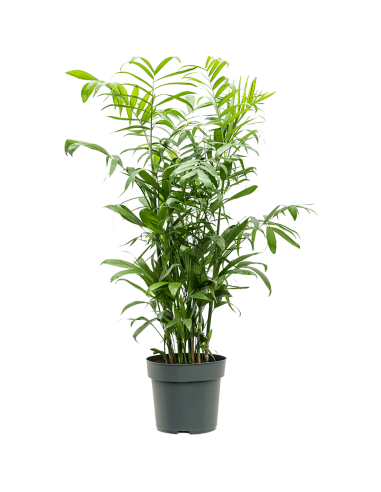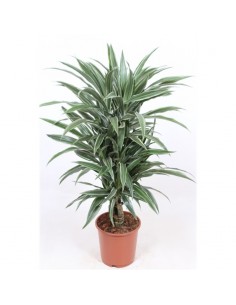copy of Mango tree
Generalities:
Mango is a super colorful exotic fruit. In appearance it resembles peaches, but compared to these it is more elongated, like a small melon, and has a skin full of holes. The pulp is excellent, sweet and juicy, and tastes like peach, orange and pineapple all together: truly extraordinary! But the best qualities of this fruit are its nutritional properties. In fact, half a mango provides 40% of the vitamin A we need every day, and 15% of the vitamin C
- Height: 180cm
Generalities:
Mango is a drupe type fruit that comes from numerous species of tropical trees belonging to the genus Mangifera, cultivated mainly for their fruit. Most of these species are found in nature in the wild. The genus belongs to the Anacardiaceae family of cashews. Mangoes in particular are indigenous to South Asia, where the "common mango" or "Indian mango", Mangifera indica, which has been distributed around the world to become one of the most cultivated fruits in the tropics, comes from. Other species of Mangifera (eg Mangifera foetida) are grown in different places. Mango is the national fruit of India, Pakistan and the Philippines, and also the national tree of Bangladesh and Australia. Mango offers an excellent dose of vitamins (especially A, group B and C) and mineral salts including potassium, calcium and magnesium, so it can be considered a real natural anti-fatigue supplement. It is also rich in water and fiber, particularly useful for the well-being of the intestine. One of the 4 researches presented in San Diego has highlighted how this fruit can help in case of constipation by acting decisively on intestinal peristalsis. The orange-yellow color of the mango reminds us of the presence of beta-carotene precursor of vitamin A, essential for obtaining a good tan (since it helps in the production of melanin) but also beneficial for sight.
Cultivation and Care:
Mango plants must be grown within all those particularly sunny areas even if they can develop very well in places positioned in semi-shade.In case you choose to grow a mango plant inside a place characterized by a rather rigid climate and with frequent frosts, the effect will be that of having great difficulty in fruiting, since the plant will grow even very little, retaining the original size of a shrub. It is essential to understand that the minimum temperatures in order to grow the mango tree must not be below 5-7 degrees centigrade. As for watering, in most cases mango plants are characterized by needing constant and frequent watering: we must not forget that watering must be provided only when the soil has completely dried up, paying great attention. to avoid the formation of excess water and remembering that, during the winter season, this plant does not require special watering. The goal of cultivating healthy trees that become as healthy and strong as possible can only be achieved when they are planted in a soil that has an excellent level of drainage, since the formation of dangerous water stagnation.




